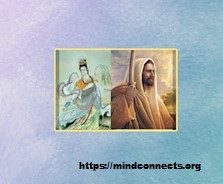The Bahá’í Faith offers profound insights into the pivotal role of spiritual guides throughout history, illuminating the path of human existence and our quest for meaning. This intricate tapestry of teachings emphasizes the importance of nurturing a connection with these divine emissaries. By contemplating the wisdom they impart, adherents can experience transformative shifts in perspective, enriching the tapestry of their daily lives. This article seeks to explore the timeless lessons embedded within Bahá’í teachings regarding spiritual guides and their enduring relevance across eras.
At the crux of the Bahá’í Faith is the belief that God has continuously sent prophets and manifestations of His will to humanity. Each of these spiritual guides—be they Moses, Jesus, Muhammad, or Bahá’u’lláh—represents a cornerstone of divine guidance, providing precepts that elevate the human spirit. With each revelation, a conceptual expansion occurs, urging humanity to evolve and progress. This evolution is not merely historical; it invites us to view our contemporaneous life through a lens imbued with spiritual awareness.
The teachings propound that spiritual guides emerge during periods of social upheaval and moral dislocation. Their arrive not merely as assemblies of precepts but as living embodiments of divine will—bearers of transformative messages. Such doctrines compel adherents to embrace a paradigm shift, moving from the mundane to the sublime, encouraging individuals to seek a deeper understanding of existence beyond the material realm.
A paramount lesson emanating from these teachings centers around the concept of unity. Spiritual guides advocate for the oneness of humanity, transcending the barriers of race, religion, and nationality. This notion is particularly salient in an age marked by division and fragmentation. Bahá’í teachings assert that embracing our interconnectedness is an essential step toward global harmony. A keen understanding of this principle, as elucidated by spiritual guides, fosters a sense of belonging, engendering collective actions that promote peace and justice.
Furthermore, the teachings emphasize personal spiritual development through adherence to ethical precepts. Spiritual guides instruct that moral rectitude serves as a foundation for one’s spiritual journey. This ongoing process of self-improvement is paramount within the Bahá’í worldview. One learns that the pursuit of virtues such as honesty, compassion, and humility fortifies one’s connection to the divine. The teachings further illustrate that as individuals cultivate these traits, they reflect the essence of the spiritual guides themselves, thus contributing positively to the societal framework surrounding them.
Integral to the notion of spiritual guidance is the concept of prayer. The Bahá’í teachings underscore the potency of prayer as a vehicle for transcendence. Engaging in prayer nourishes the soul and fortifies the connection between the seeker and the spiritual realm. It serves as a medium for guidance, enabling individuals to discern divine will amidst the cacophony of life’s distractions. The act of prayer, replete with intention and devotion, reiterates the significance of remaining grounded while simultaneously aspiring towards lofty spiritual goals.
Equally significant is the exploration of the role of spiritual guides in navigating life’s myriad challenges. In a world inundated with uncertainties and strife, the teachings suggest that the wisdom of these guides provides a source of solace and clarity. Their insights, encapsulated within the sacred texts, furnish practical frameworks through which individuals can confront adversity. The Bahá’í teachings encourage an adaptive resilience that honors the trials faced, illustrating that they often serve as catalysts for personal growth and fortitude.
Moreover, the interrelation between science and spirituality is another salient theme woven into Bahá’í teachings. Spiritual guides have consistently illuminated the necessity for harmony between these two realms. This perspective compels adherents to appreciate the world’s intricacies and mysteries through both spiritual and empirical lenses. Such a holistic view engenders a sense of curiosity and wonder about the universe, encouraging seekers to delve deeper into both scientific inquiry and spiritual exploration. This duality enriches the learner’s experience, promoting a balanced approach to understanding reality.
In relation to the younger generation, the emphasis on mentoring emerges prominently in Bahá’í teachings. Spiritual guides not only illuminate paths but also inspire individuals to mentor others, imparting the lessons learned and nurturing future leaders. The importance of continuous learning and sharing of wisdom underscores the communal aspect of spiritual growth. This role of mentorship serves as a conduit for ensuring that the teachings of spiritual guides endure through time, cultivating a legacy of understanding and compassion.
The transformative power of spiritual guides beckons individuals to transcend their limitations. Encouraging detachment from materialistic pursuits, they advocate for an expansive vision of existence that prioritizes spiritual and communal well-being over individualistic gain. It is through this paradigm that seekers can truly embrace the depth of experience that life offers. This rejection of superficiality in favor of profound connection leads to a richer, more purposeful existence.
Ultimately, engaging with the teachings of spiritual guides within the Bahá’í Faith invites an exploration of life’s most profound questions. How does one navigate crises of identity and purpose? What does it mean to live authentically in a world that often champions conformity? The continuous dialogue promoted by these teachings encourages seekers to reflect upon their place within the cosmos, cultivating a sense of responsibility toward oneself and humanity.
In summary, the guidance of the spiritual leaders throughout history represents not only a treasure trove of wisdom but also a call to action resonating with those who yearn for a deeper connection with the divine. As adherents immerse themselves in these teachings, they are urged to embrace their role in the ongoing narrative of humanity’s evolution. This transformative engagement not only piques curiosity but also promises to harmonize the discordant notes of modern existence into a symphony of purpose and unity.
